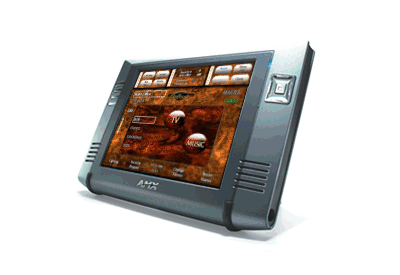 |
 |
 |
|||||||||||
 |
 |
 |
 |
||||||||||
 |
|||||||||||||
 |
|||||||||||||
 |
 |
||||||||||||
Golden Pacific Systems realized that there needed to be a better way. The next generation of theater control software required standardized installation, advanced user features, and upgradeability. At the core of their concept was the goal that the system should revolve around the user - and more than just one user. Each user should be offered personalized entertainment content management tailored to their tastes, habits, and technical sophistication. Quite simply, it’s the job of the control software to convert user wishes into device behavior, without the user having to know what’s involved.
After more than four years of software development, CineTouch and MusicTouch for home theaters and multi-zone systems are here. They manage each item of hardware on its own terms, but abstract the functionality for consistent and interchangeable operation from the user point of view. Using the expertise of computer and Internet industry designers and engineers, GPS created a data-driven architecture to command any mix of the best hardware in the industry. No more one-off creations. Everything about a system - its devices, its users, its locations, its capabilities – are managed from a database of behavior and characteristics. The database even includes device details like startup delay and inter-command timing data, as well as maintaining the current state of any device setting and operation. By reference to a database lookup of desired behavior, the GPS system issues the right codes for predictable actions. Thus the user no longer “operates equipment”, they “select content”. For example, if you want to watch news, just touch the button for NEWS. The system knows what to do to give you your favorite news source, and just does it. And you can change any system behavior at any time as easily as setting a station on a car radio.
This new content-
and user-centric operation paradigm vastly alters expectations and satisfaction
with the system. Non-technical users find it easier to do more of what
they want. Advanced users find that they actually use more of the power
features because of their simplicity and familiarity. With state and history
management, what you get is what you expect - right down to a resumption
of the program and the volume settings you last used anywhere in the home,
if that’s your preference. |
||||||||||||
![]()

 MusicTouch
and CineTouch simplify operation by not offering functions
that are not available to the location or to the user. Password protected
profiles customize controls to be offered to users with less sophistication
or to those whose access should be managed by content or time. Similarly,
devices, zones, or profiles can be locked to prevent use or changes, either
temporarily for parties or as a rule for parental control.
MusicTouch
and CineTouch simplify operation by not offering functions
that are not available to the location or to the user. Password protected
profiles customize controls to be offered to users with less sophistication
or to those whose access should be managed by content or time. Similarly,
devices, zones, or profiles can be locked to prevent use or changes, either
temporarily for parties or as a rule for parental control.